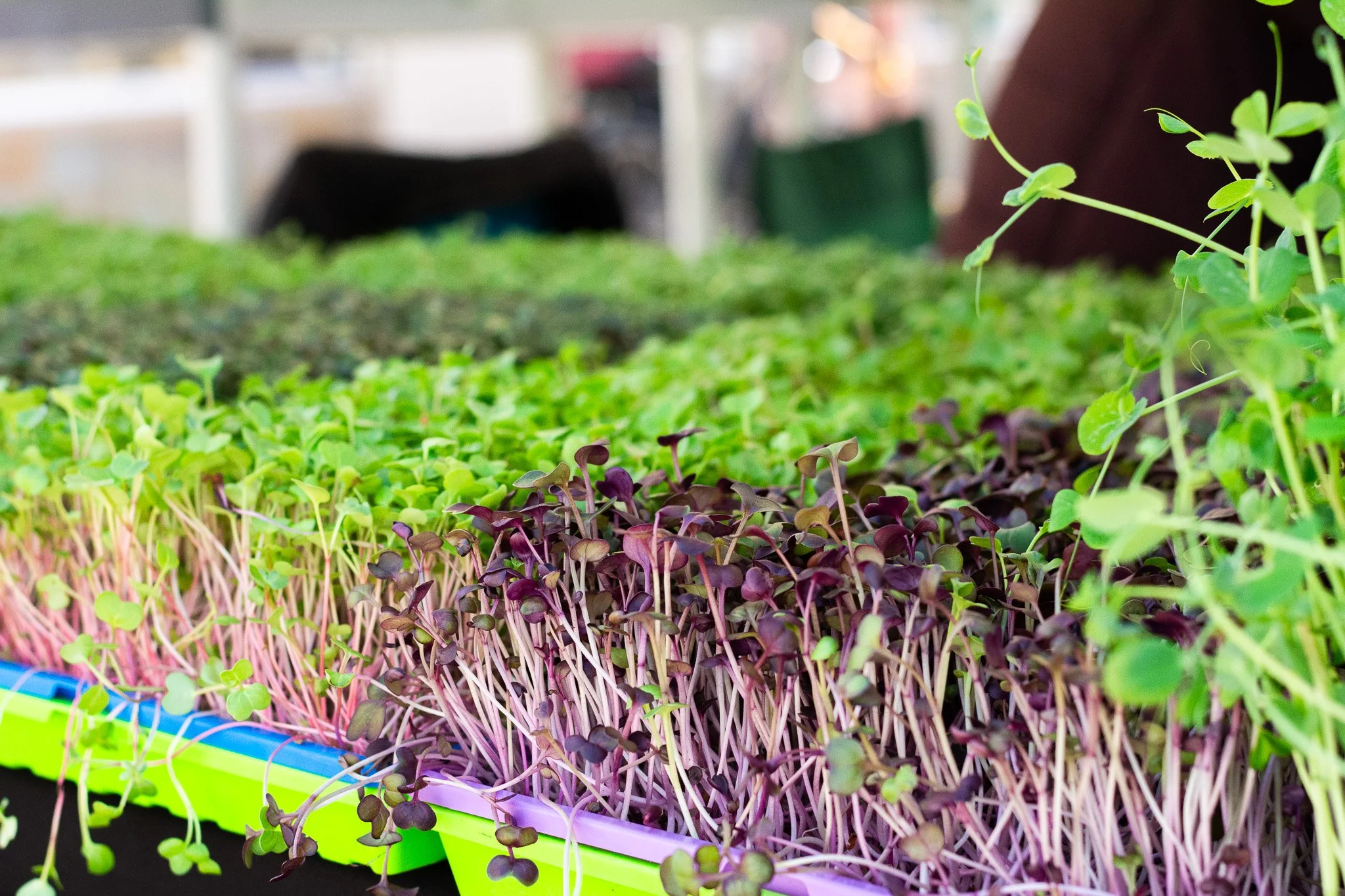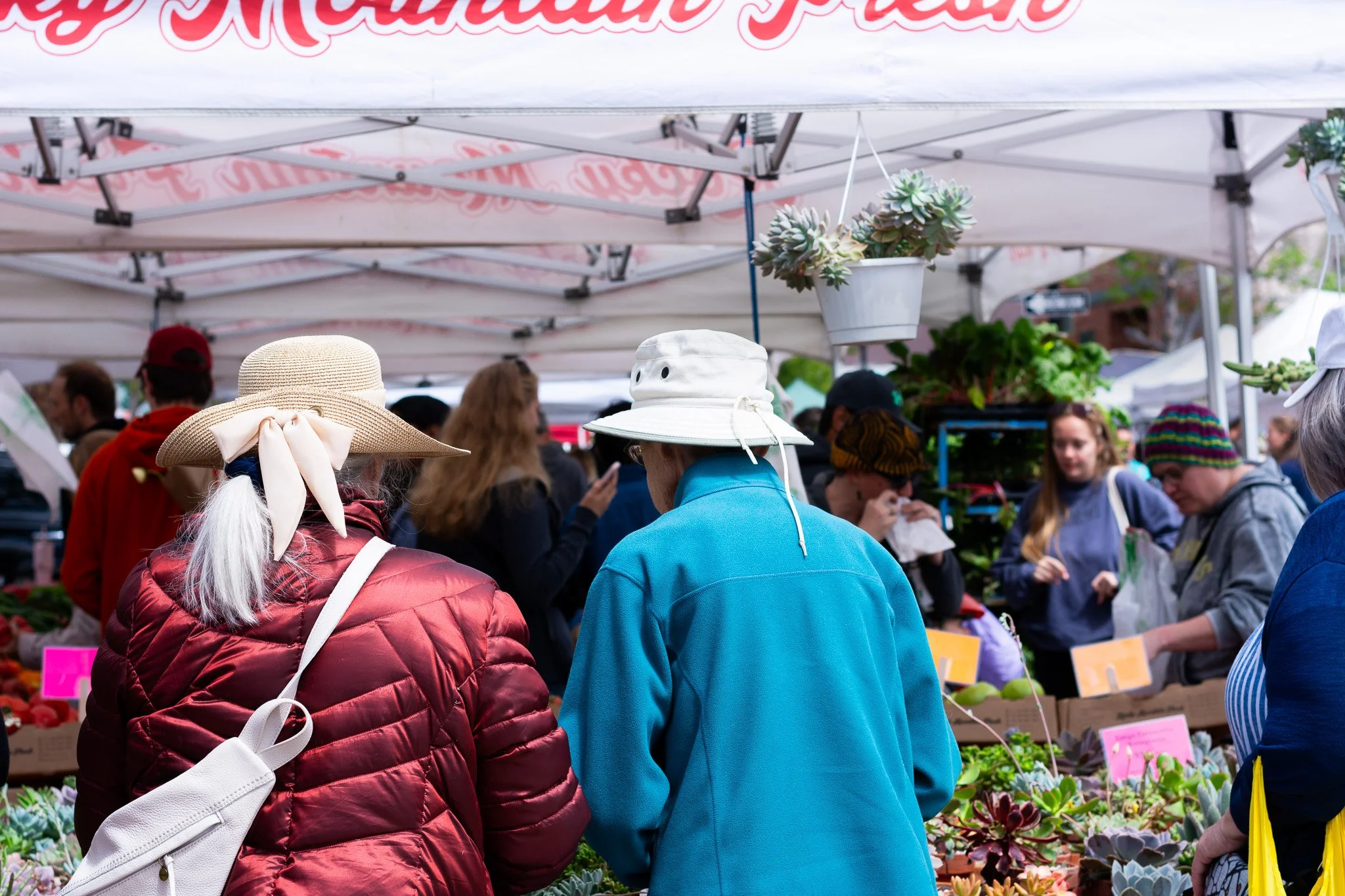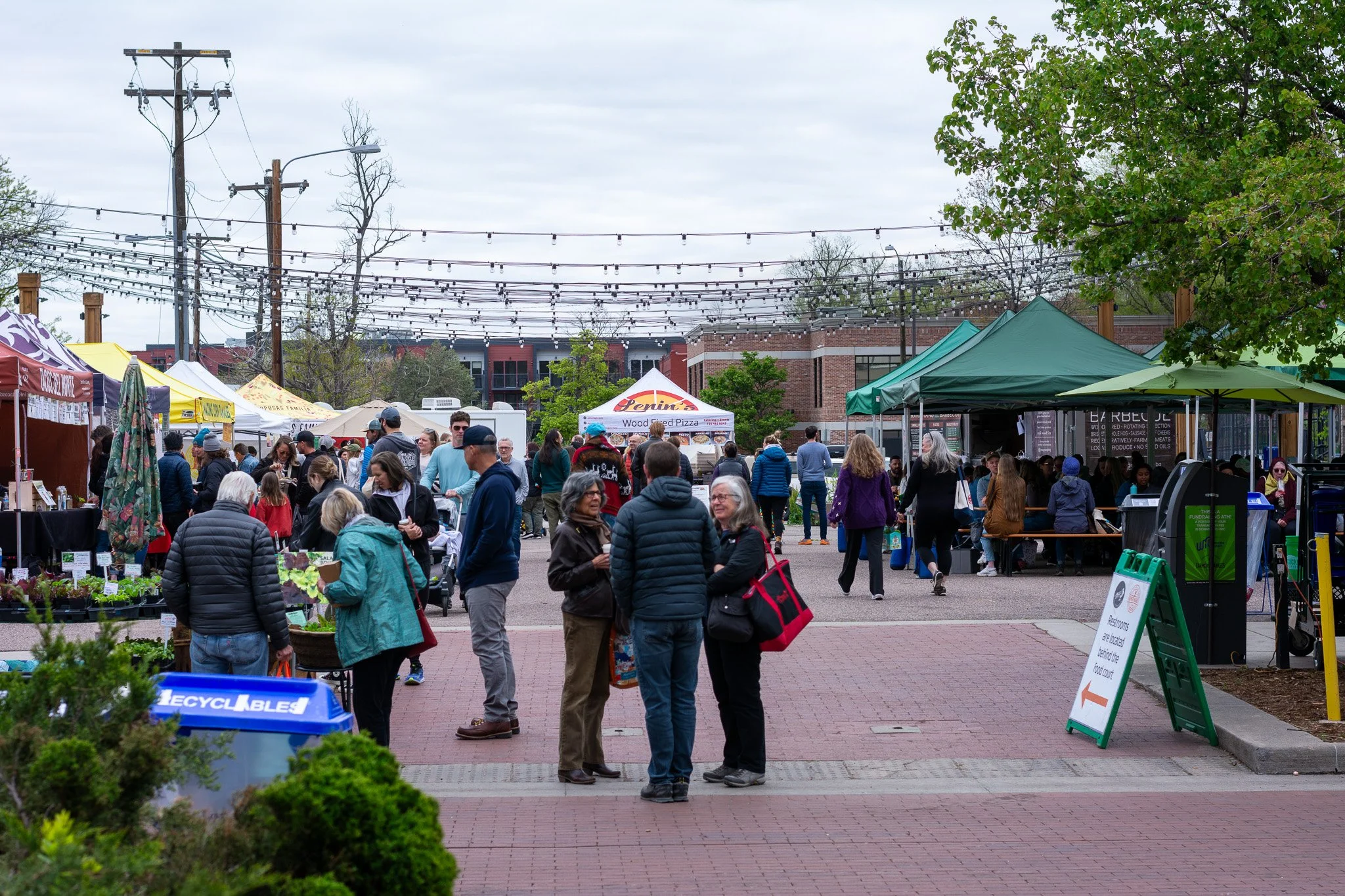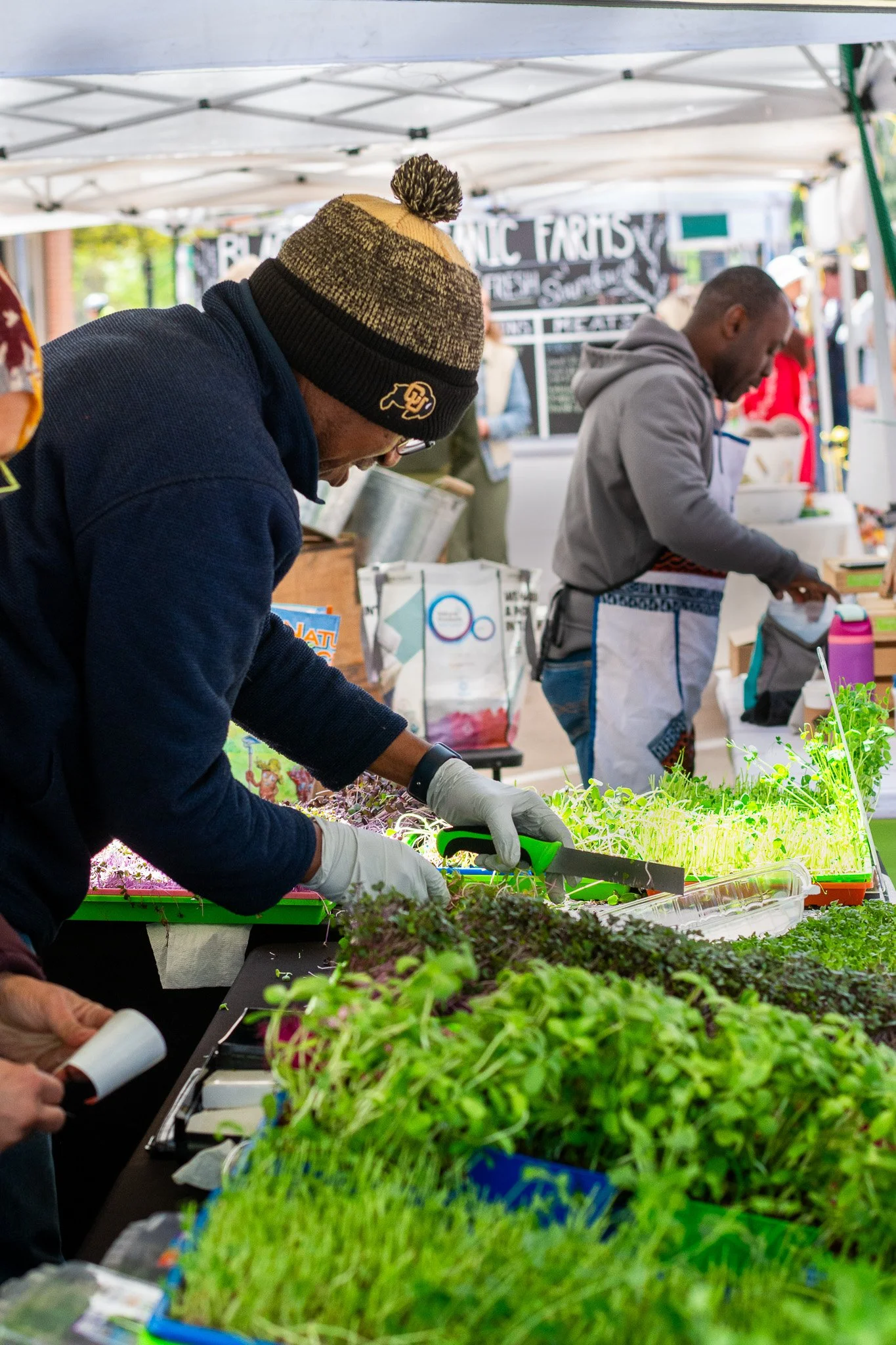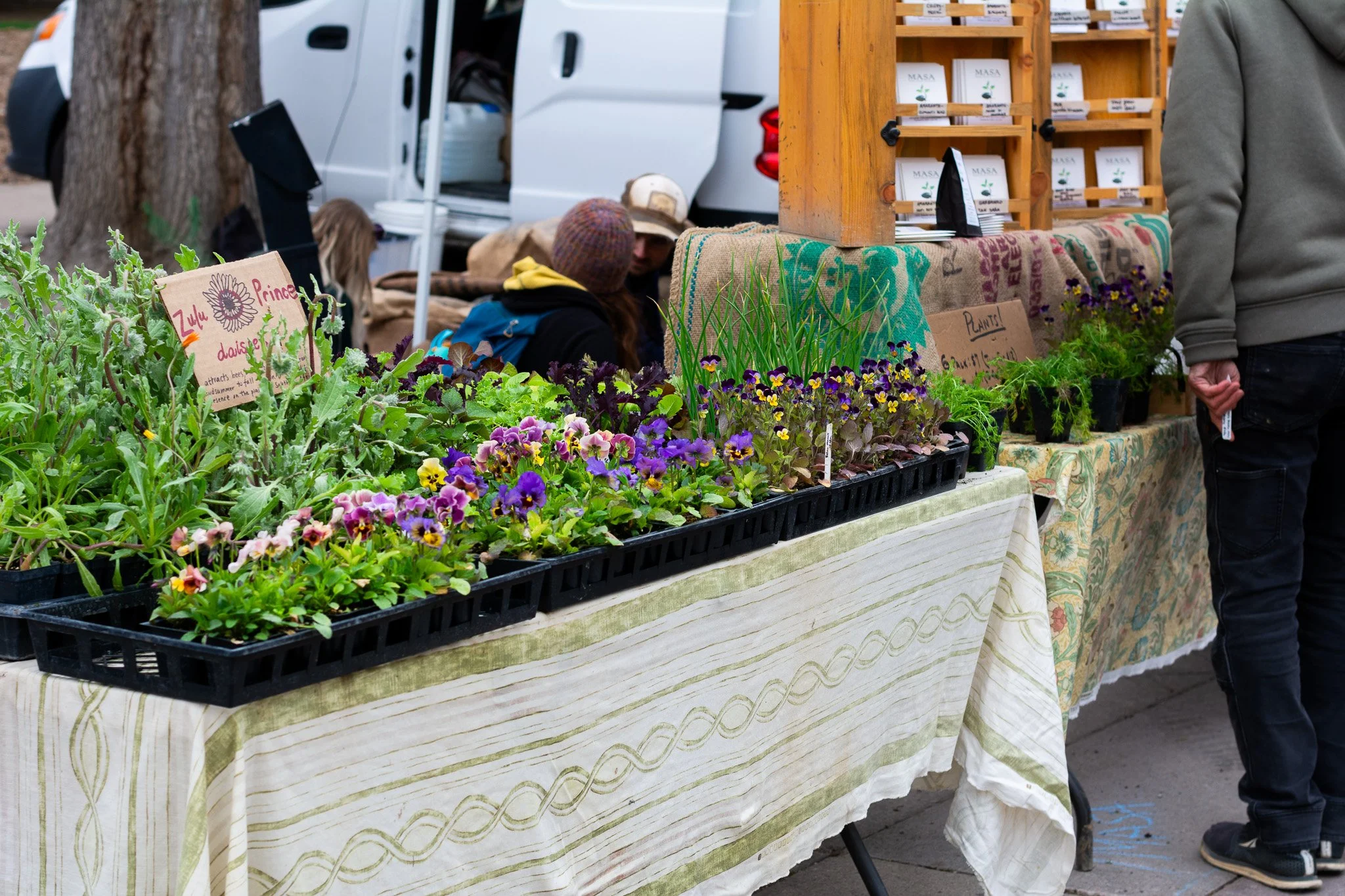A Farmers Market Story
May 5, 2024
Assorted micro-greens from Simply Fresh Micro-greens.
As the sun slowly started to rise across the Flat Irons, vendors started to set up their products and tents as the shadows lengthened across 13th Street. Everything from pots of basil and pepper plants, to packed baskets full of freshly baked bread waited as people started to file in. Walking down the row, the scent of aromatized herbs combined with local food vendors engulfed the noses of the patrons walking within the market. In between the information desk and the mushroom farmers, lay the booth of Colorado local Ibrihim. This passionate farmer travels from Longmont on Saturdays and Wednesdays to present their nutrient packed, micro-greens to the Boulder Farmers Market. Across the way from them is MASA Seed Foundation where they provide everything from flower seeds to full blown tomato plants. The Boulder Farmers Market is a core place for not just the people of the area, but the farmers and providers that live to supply the market with fresh, sustainable, and delicious products.
Being established over 40 years ago, the Boulder Farmers Markets is a hub for all. A selective choice of foods ranging from Brazilian chocolates, assortments of onions, fruits, to jam and honeys. Frankie Ryder is the Marketing director of the Farmers Market which covers the Boulder and Longmont locations. She says the farmers' market consistently stays on Saturdays and Wednesdays as it gives the locals, and the farmers the time needed to prepare. One of the main reasons farmers markets make such a significant impact is due to the connectivity of the farmers and the locals.
“The role that farmers markets play in local agriculture is really connecting the growers, who are doing incredible work in their community, to the customers who already have an interest in buying those products,” said Ryder
Local couple picking out succulents at a vendor.
There are over 100 hundred vendors that take part in the Farmers Market. They are separated by produce farms and plants, milk, dairy, and eggs, food and drink vendors, and finally, packaged goods. Ryder explained how there is a strict process when deciding the vendors each year.
“We have a matrix that people get rated on. It's really quite an involved process,” said Ryder.
A certain list of requirements must be met to take part in the market. The non-profit only accepts those 100% locally grown in Colorado. A certain level of sustainability must also be met, again, following the idea of local, ethical farming. To ensure these, their team visits each farm to verify what the farmer is practicing is true.
For Ibrahim Ayad, getting involved was a long, yet satisfying journey. He started growing microgreens for his family in one tray under a table. Adding it to their family meals to add more nutrients. His neighbor soon found out what he was doing and Ayad started growing for him. He then started to join in a six-acre community garden where his greens became extremely popular. Moving to Colorado challenged his growing as the climate was contrasted, however he learned to grow inside. This allowed him to grow year-round. He started Simply Fresh Microgreens, which is now involved in four farmers markets in the Boulder-Longmont area. His microgreens are not only nutrient dense, but also provide patrons with a sustainably grown product.
“We conserve almost 95% of the water that we use,” said Ayad.
Top: Farmers Market food court filled with local eateries. Bottom: Ibrahim Ayad trimming an assortment of micro-greens for a customer.
By using coconut shells which retain water usage to plant the seeds in, using trays instead of large plots of land for growing, and no preservatives or animal byproducts, microgreens are a step in the right direction. They are essentially the seeds of regular vegetables such as broccoli or beets but trimmed 75 days before forming the actual plant. This densely grown plant has 40% more nutrients than its comparative counterpart.
“So yes, it is a little bit expensive. But it's really good and healthy, because it's pure organic,” said Ayad.
Overall, it's important to support farmers markets to continue the cycle of dependency it has created. The farmers depend on the patrons to buy, and the patrons depend on the farmers to sell. This creates a relationship that brings up the importance of supporting these markets and local agriculture.
“I think I would definitely ask the people to support the local producers,” said Ayud, “This is not only beneficial to them to have, like we said, local fresh foods, but it's also helping the local economy for them as well.”
Locally grown flowers and seeds

